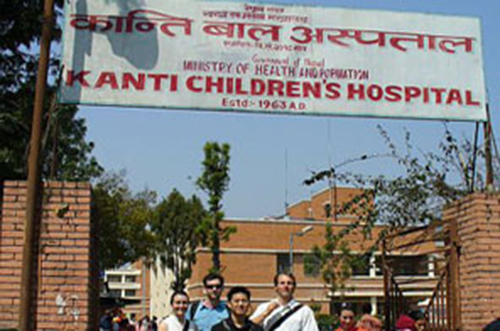Diabetes on the rise among children
Kathmandu, January 19
Of the total number of children visiting the endocrine out-patient department of Kanti Children’s Hospital, six per cent of them are found to be suffering from diabetes.
As many as 464 new patients had visited the endocrine department in the fiscal 2018-2019.
“Lack of understanding about the disease, insulin deficiency, changing lifestyle, consumption of sugary drinks and food, junk food items and obesity
are to be blamed for diabetes in children,” said Dr Subhana Thapa Karki, senior consultant paediatrician and paediatric endocrinologist at Kanti Children’s Hospital.
Type one diabetes occurs when the pancreas does not produce enough insulin, a hormone that regulates blood sugar. Type two diabetes comprises the majority of people with diabetes around the world and is largely the result of excessive body weight and physical inactivity.
“Children in Nepal are basically found to be suffering from type one diabetes. Some of them are also suffering from type two diabetes,” said Dr Karki.
According to Kanti Children’s Hospital, 27 children including 14 males and 13 females were found to be suffering from diabetes in the fiscal 2017-2018. The number of children visiting the hospital with diabetes reached 29 in the fiscal 2018-2019.
If the blood sugar is not controlled in children, they are at risk of suffering from retinopathy — damage to the retina of the eyes, which may cause vision impairment, high blood pressure, neuropathy, dysfunction of nerves resulting numbness, tingling, muscle weakness, and complications in kidneys.
“Obesity in children is a risk factor for diabetes in them. Children these days spend more time playing games in electronic gadgets rather than playing games that demand their physical activities. Intake of sweet food items such as biscuits, ice-cream, bakery food items and junk food items are also contributing factors for increasing diabetes cases among children,” she said.
According to hospital data, the rate of children suffering from obesity/underweight is 20.7 per cent.
Though the children are found to be suffering from diabetes, many parents are not aware about its symptoms. Many children are brought to the hospital when the level of blood sugar goes too low. The children at times need to be admitted in the intensive care unit in the hospital when their condition worsens. It too can lead to morbidity in some children, as per the doctor.
Instead of bringing children to hospital only when the case is severe, parents or caretakers of the children should be informed about the symptoms of diabetes. Dry mouth and increased thirst, fatigue, frequent urination, weight loss, increased hunger, vaginal discharge in girls and cuts that heal slowly are some of the symptoms of diabetes in children, according to doctors.
“Instead of cutting down the food intake of children, it is necessary to provide them balanced diet for healthy growth and development. Timely treatment and avoiding junk food items can be helpful,” said Dr Karki.






